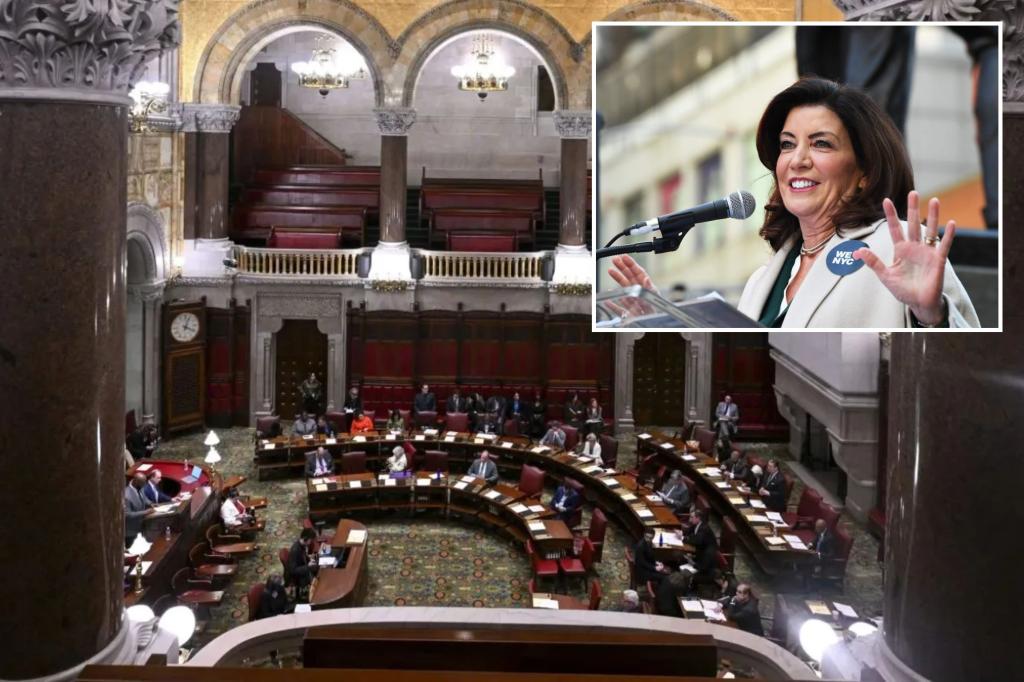Negotiations for the new state budget will likely go beyond Friday’s deadline, which is just as well given the alarm sounded by the nonpartisan Citizens Budget Commission: Gov. Kathy Hochul’s plan would soon put New York in a nasty fiscal hole, while the Legislature’s plans point to utter disaster.
The CBC’s new policy brief warns that Hochul would produce a $15 billion-a-year structural deficit by 2027, while the Assembly and state Senate proposals translate to a $20 billion annual hole.
Hochul’s plan widens the state’s structural gap to $15 billion while the Legislature’s proposals, by adding about $3.9 billion a year in new spending atop her budget, widen the gap to nearly $20 billion.
Baseline state spending already grew nearly $24 billion these last three years, after growing just under $20 billion in the previous nine.
And the vast federal aid that allowed those spending hikes is expiring.
Which means that, within a few years, New York will have to either slash spending or hike already nation-leading taxes through the roof — further accelerating the current exodus of jobs and taxpayers.

To avoid the fiscal cliff, the CBC recommends some modest steps:
- Restrain State Operating Fund spending growth to 2% a year. (Hochul’s plan is for twice that; the Legislature, three times it.)
- Allow temporary tax increases to sunset as scheduled. (They’re a big part of what’s driving New Yorkers and businesses away.)
- Maintain or expand the “rainy day” reserves. (Be ready for an all-too-likely recession.)
- Reform budgeting and fiscal management to improve services, stability and accountability. (Things like standardized accounting and rational debt management go a long way to avoiding nasty surprises.)
It’s late in the budget game to change to a saner course, but this year a late budget (even a months-late one) may be the most prudent way ahead. Interim agreements can keep state government working at previous spending levels with no harm except to politicians’ drunken-sailor dreams.
Albany typically pays far more attention to special interests than to fiscal experts or screaming taxpayers. Now more than ever, gridlock serves the public’s interest.
𝗖𝗿𝗲𝗱𝗶𝘁𝘀, 𝗖𝗼𝗽𝘆𝗿𝗶𝗴𝗵𝘁 & 𝗖𝗼𝘂𝗿𝘁𝗲𝘀𝘆: nypost.com
𝗙𝗼𝗿 𝗮𝗻𝘆 𝗰𝗼𝗺𝗽𝗹𝗮𝗶𝗻𝘁𝘀 𝗿𝗲𝗴𝗮𝗿𝗱𝗶𝗻𝗴 𝗗𝗠𝗖𝗔,
𝗣𝗹𝗲𝗮𝘀𝗲 𝘀𝗲𝗻𝗱 𝘂𝘀 𝗮𝗻 𝗲𝗺𝗮𝗶𝗹 𝗮𝘁 dmca@enspirers.com


